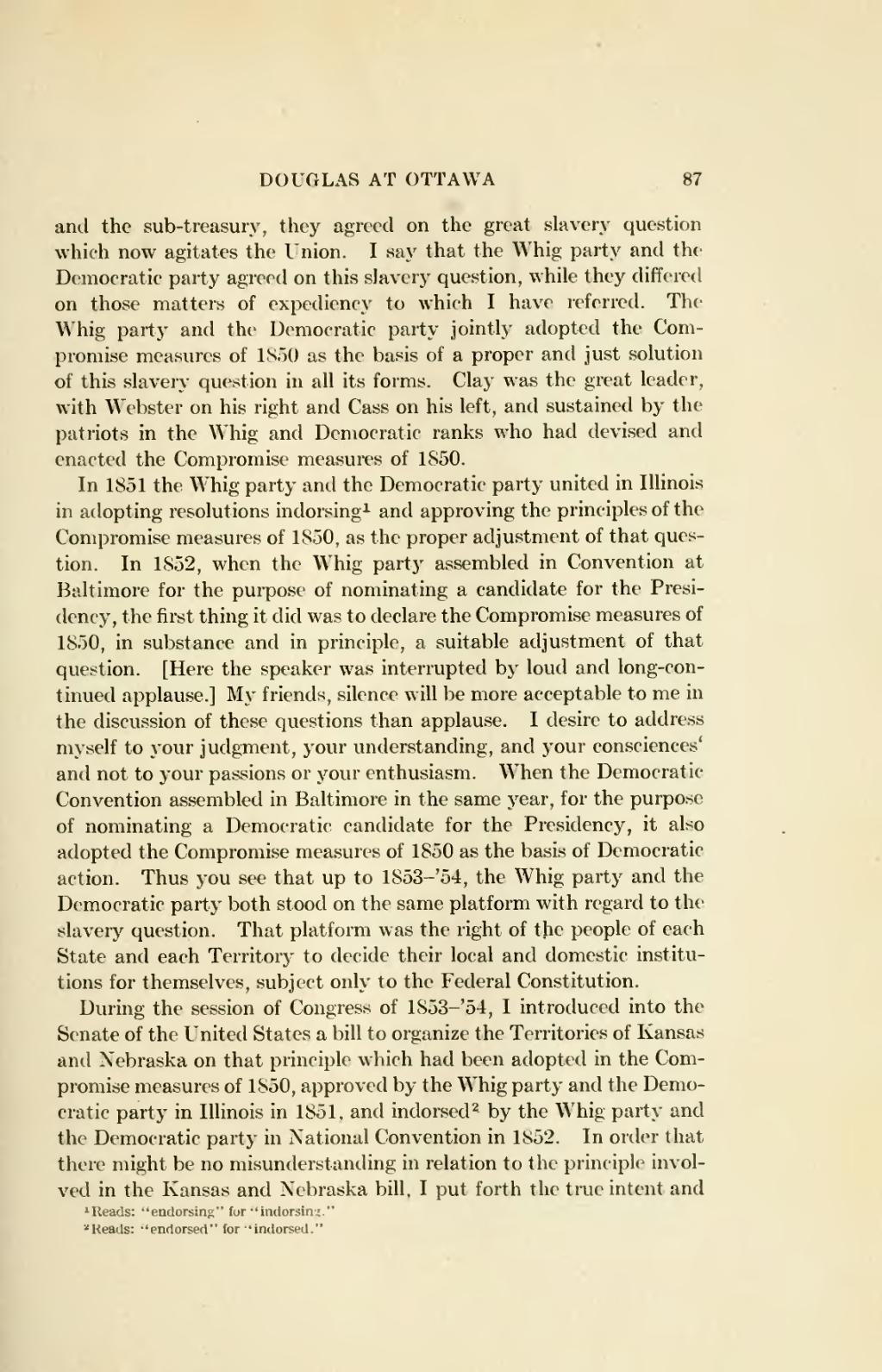and the sub-treasury, they agreed on the great slavery question which now agitates the Union. I say that the Whig party and the Democratic party agreed on this slavery question, while they differed on those matters of expediency to which I have referred. The Whig party and the Democratic party jointly adopted the Compromise measures of 1850 as the basis of a proper and just solution of this slavery question in all its forms. Clay was the great leader, with Webster on his right and Cass on his left, and sustained by the patriots in the Whig and Democratic ranks who had devised and enacted the Compromise measures of 1850.
In 1851 the Whig party and the Democratic party united in Illinois in adopting resolutions indorsing[1] and approving the principles of the Compromise measures of 1850, as the proper adjustment of that question. In 1852, when the Whig party assembled in Convention at Baltimore for the purpose of nominating a candidate for the Presidency, the first thing it did was to declare the Compromise measures of 1850, in substance and in principle, a suitable adjustment of that question. [Here the speaker was interrupted by loud and long-continued applause.] My friends, silence will be more acceptable to me in the discussion of these questions than applause. I desire to address myself to your judgment, your understanding, and your consciences and not to your passions or your enthusiasm. When the Democratic Convention assembled in Baltimore in the same year, for the purpose of nominating a Democratic candidate for the Presidency, it also adopted the Compromise measures of 1850 as the basis of Democratic action. Thus you see that up to 1853-'54, the Whig party and the Democratic party both stood on the same platform with regard to the slavery question. That platform was the right of the people of each State and each Territory to decide their local and domestic institutions for themselves, subject only to the Federal Constitution.
During the session of Congress of 1853-'54, I introduced into the Senate of the United States a bill to organize the Territories of Kansas and Nebraska on that principle which had been adopted in the Compromise measures of 1850, approved by the Whig party and the Democratic party in Illinois in 1851, and indorsed[2] by the Whig party and the Democratic party in National Convention in 1852. In order that there might be no misunderstanding in relation to the principle involved in the Kansas and Nebraska bill, I put forth the true intent and
